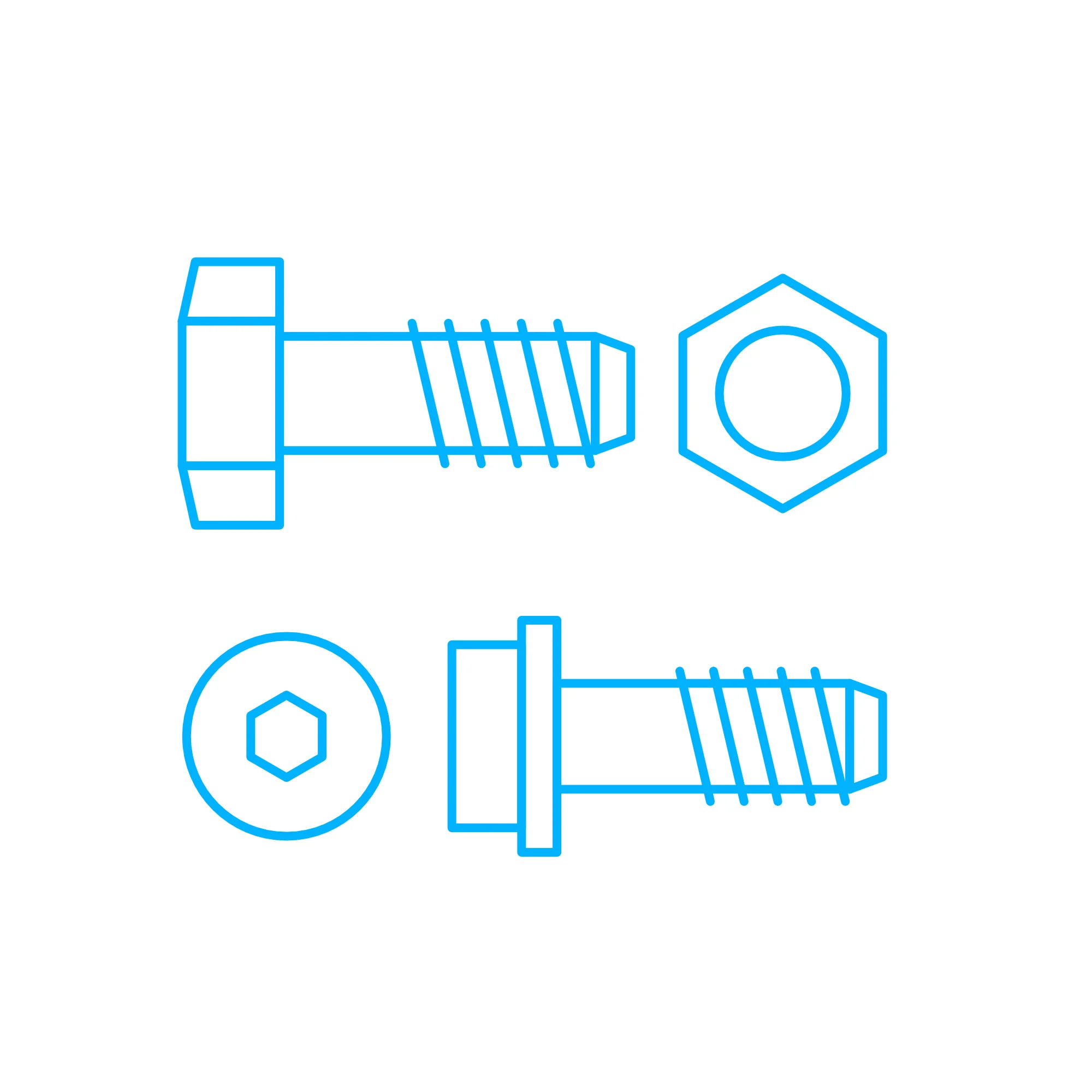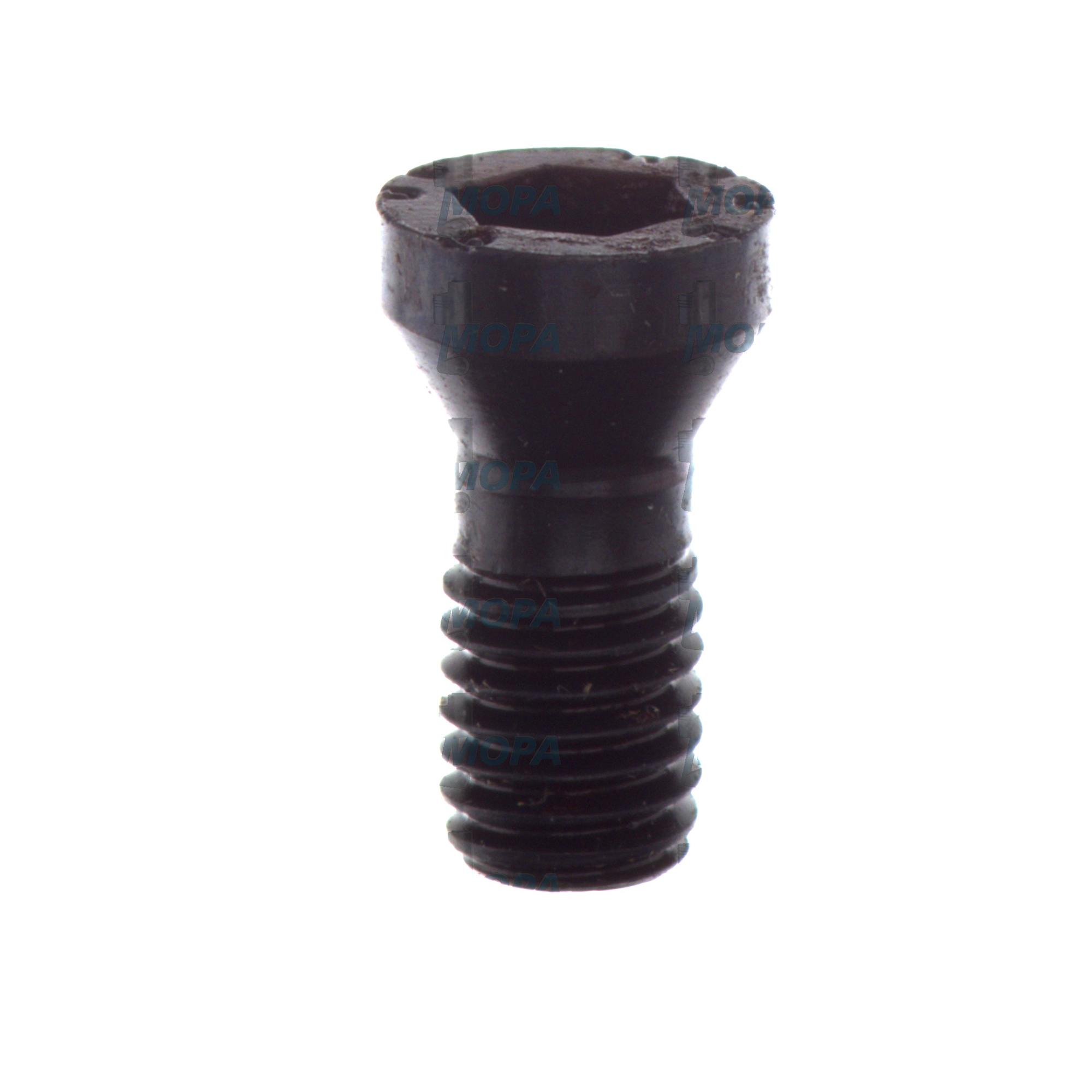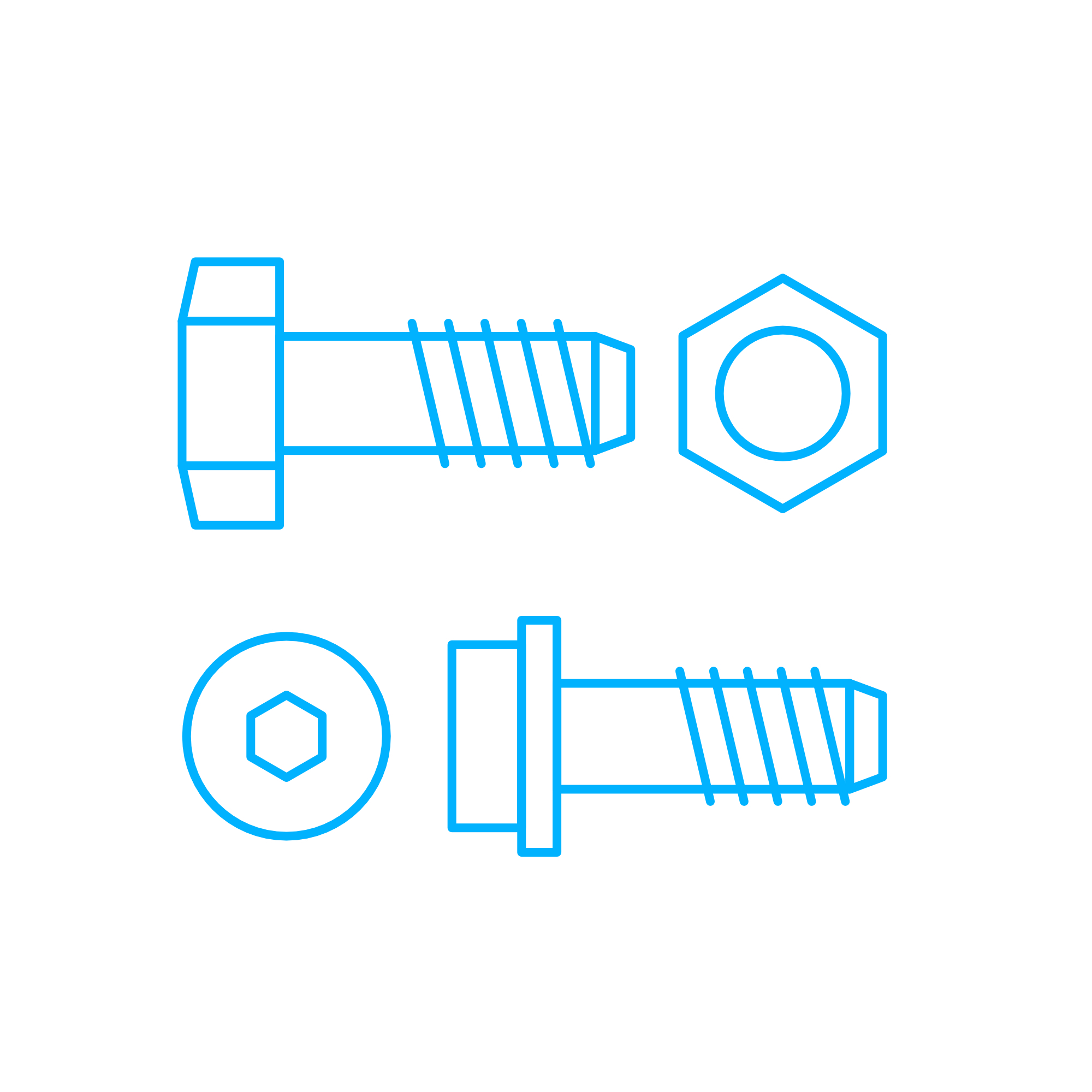CYLINDER SCREW Screws for Marine and Diesel Engines
Screws are precision fasteners that create controlled clamping force across critical joints in engines. In heavy-duty diesel and gas engines, they secure cylinder heads, main bearing caps, injector clamps, turbocharger brackets, exhaust manifolds, and covers—keeping combustion pressure, oil, and coolant exactly where they belong. As an article category, Screws cover multiple head styles and property classes designed to withstand vibration, thermal expansion, and high-frequency load cycles. Their job is straightforward yet vital: deliver reliable preload so components remain aligned, sealed, and safe throughout the engine’s service life.
In marine applications, Screws face additional challenges such as salt-laden atmospheres, galvanic effects, and long maintenance intervals at sea. For shipowners and technical buyers, choosing the right specification—dimensional fit, property class, surface treatment, and torque method—directly influences uptime, fuel efficiency, and compliance with class and safety requirements. Whether you are assembling a cylinder head or replacing ancillary fasteners during overhaul, the correct CYLINDER SCREW selection drives consistent performance.
Technical function of Screws and CYLINDER SCREW in a diesel engine
The core function of a Screw in an engine joint is to generate and retain preload. When tightened to a specified torque or torque-plus-angle, the fastener stretches elastically. This elongation clamps mating parts (e.g., cylinder head and block) with a force higher than the maximum service load, so the joint never separates under combustion pressure or vibration. The result is stable sealing, precise component alignment, and minimal fretting.
Material and geometry determine performance. Engine-grade Screws are commonly tempered alloy steel in property class 10.9 or 12.9 for high tensile strength, sometimes with fine threads to increase clamping resolution and resistance to loosening. Surface finishes such as phosphate and oil, zinc-nickel, or zinc-flake coatings stabilize friction coefficients and protect against corrosion. In many engine designs, a socket head cap screw—often called a CYLINDER SCREW—provides high strength with compact head geometry for tight spaces around manifolds or timing gear covers.
How a CYLINDER SCREW marine engine joint stays sealed
Stable preload is the safeguard against gasket blow-by, oil and coolant leaks, and flange distortion. In a diesel engine, a CYLINDER SCREW tightened via torque-angle reduces scatter caused by friction and ensures predictable clamping. Under thermal cycling, the correct fastener property class maintains elasticity, while specified washers or flange faces distribute load and minimize embedding. With the right coating and lubricant, the friction factor (K) stays within range so torque translates into the intended preload—critical for repeatable assembly on CYLINDER SCREW OEM parts and field maintenance.
- · High tensile strength for consistent preload.
- · Controlled friction for accurate torque-to-tension.
- · Corrosion protection suitable for marine atmospheres.
- · Precise thread tolerances for reliable fit.
- · Heat-treated metallurgy for fatigue resistance.
- · Head styles (e.g., CYLINDER SCREW) for tight installation spaces.
- · Compatibility with torque-angle procedures.
- · Traceable batches and specification conformity.
Importance of Screws for engine operation and safety
Without correct Screws, even the best engine design will underperform. Loss of clamp load leads to gasket failure, combustion leakage, and power loss. Misalignment of housings or bearing caps elevates friction, accelerates wear, and risks catastrophic damage. On turbocharger and exhaust connections, failed screws can cause hot gas leaks, reduced boost, or even fire hazards. In fuel systems, inadequate injector clamp screws disturb nozzle seating, degrading injection timing and increasing specific fuel consumption.
Wear, corrosion, or thread damage compromises preload. Reusing single-use stretch screws can cause joint relaxation. Applying a generic fastener with the wrong friction coefficient may produce preload that is too low (leaks, fretting) or too high (yielding, thread stripping). In short, the condition and specification of the Screw directly affect reliability, efficiency, and safety across the entire engine. For CYLINDER SCREW diesel engine applications where vibration and thermal gradients are extreme, selecting the right fastener is non-negotiable.
Advantages of OEM spare parts suitable for Screws and CYLINDER SCREW OEM parts
OEM spare parts suitable for Screws ensure dimensional tolerances, heat treatment, and coatings match the engine maker’s joint design. That means the specified friction factor is achieved with the recommended lubricant, so a given torque produces the intended preload—critical for cylinder head sealing and manifold stability. The metallurgy and property class are aligned with the joint stiffness, preventing premature relaxation and fatigue failures.
Using OEM spare parts suitable for CYLINDER SCREW reduces downtime by enabling right-first-time assembly, aids predictability in maintenance planning, and supports compliance with marine and industrial standards. Documentation and batch traceability help technical buyers manage risk across fleets, while optimized corrosion protection and coating compatibility reduce lifecycle costs, especially in brackish or saltwater environments.
From a budget perspective, consistent clamp load extends gasket life, minimizes rework, and protects high-value components. Over the engine’s service life, that translates into lower total cost of ownership and stable performance under load, whether in a main propulsion marine engine or an auxiliary diesel generator.
MOPA – your partner for Screws and CYLINDER SCREW OEM parts for diesel and gas engines
MOPA is an experienced, reliable partner for OEM spare parts Screws, supplying CYLINDER SCREW OEM parts across a wide range of diesel and gas engines. Purchasers and shipowners rely on MOPA for speed, quality, and security in the trade of OEM parts, from urgent AOG-style shipments to planned dockyard overhauls. Our team supports precise cross-referencing of part numbers, ensures batch traceability, and delivers fast worldwide—so critical fasteners arrive when and where you need them.
With MOPA, you gain a stable supply chain for engine fasteners that meet specification and performance targets. That means fewer surprises during overhaul, more predictable assembly outcomes, and sustained engine reliability at sea and on land.
Conclusion on Screws and CYLINDER SCREW
Screws—especially the CYLINDER SCREW used across tight, high-load joints—are fundamental to sealing, alignment, and safety in marine and diesel engines. Their ability to deliver and retain precise preload under harsh conditions directly impacts performance and service life.
Choosing OEM spare parts suitable for Screws and CYLINDER SCREW OEM parts ensures fit, clamping accuracy, and corrosion resistance that protect your engine and your budget. With MOPA, you secure fast, dependable access to the right fasteners for every engine application.




